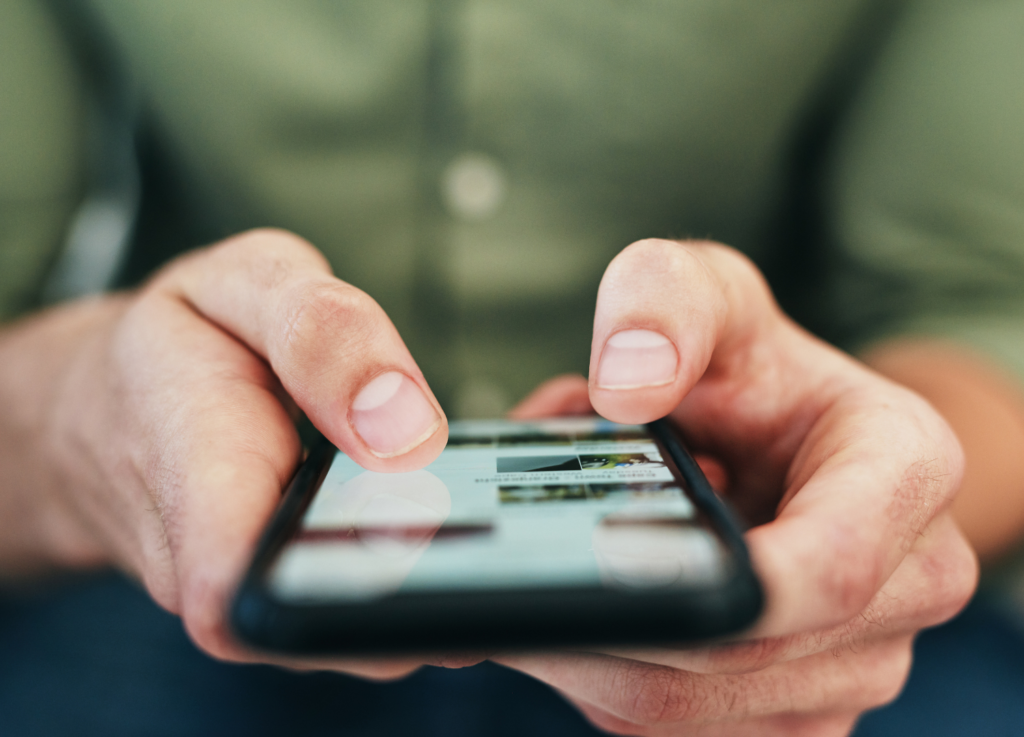Let’s face it. Smart phones are an AMAZING invention, offering “connection” at the press of a button and instant access to information that we love to read or watch. What’s wrong with that? A decade ago, I would have thought just this. Ten years later, as I watch people walk through the streets with their heads down, observe couples at dinner who are looking at their phones instead of each other, hear people talk about their “burnout” and find MYSELF telling my boys “one more minute” while I multitask, it’s hard not to notice that this modern day convenience is causing some problems. Digital dependency is disconnecting us from others, increasing our stress and weakening our ability to focus. In this article, I’ll explore three different types of phone “boundaries”, and some simple things that we can use to regain control of our focus and health as busy working professionals.
HOW SMARTPHONES KEEP US HOOKED
First and foremost, I must say… THEY ARE GOOD. Those algorithm designers, I mean. And it’s very satisfying to have the ability to communicate with anyone just about anywhere. But every time we check our phones and receive a new message, like, or notification, our brains release dopamine…that “feel-good” chemical linked to reward and pleasure. This rush reinforces our behavior, making us crave the next hit. Over time, our brains become conditioned to seek out these mini-rewards, leading us to check our phones constantly, even when there’s no real need. This constant dopamine stimulation can disrupt our natural reward systems, leaving us distracted and anxious, leading to a deterioration of attention spans and record levels of chronic stress. That’s the bad part.
But the good part? We CAN do something about it, but we must get very intentional with our habits and focus.

THREE TYPES OF LIMITS
Dr. Iditi Nerurkar, author of The Five Resets and Harvard stress clinician, encourages us to consider three different types of smart phone limits : Time Limits, Geographic Limits and Logistical Limits. Depending on you and your lifestyle, one may work better for you then the other. However each one, when implemented, will bring a bit more intention and focus to your day.
Time Limit. We all find ourselves getting “lost in the scroll”. Remember that those algorithms are super powerful, and will win when up against your personal willpower. Use technology to help you set limits. Understand which apps are your “guilty pleasure” and take back so much time in your day by giving yourself a set amount of time to scroll. You can designate a certain time of day as your “scrolling time” or use built in or app-based limits that you set through screen time controls to limit certain app times. You’ll be amazed to see just how quickly the time flies, and more importantly, how much time you gain back for more productive tasks.
- Geographical Limits: Place phone out of site during problematic times of day. Designate meetings and dinners as phone-free times to maximize connection and mindful listening. Avoid using it as an alarm on your nightstand so you’re less likely to scroll into sleeping hours (causing high stress the next day). This also prevents you from grabbing it first thing and starting your day off depleted from work-related stressors or negative news. Designate time blocks for fully-focused immersive work, and keep it in another room or in a drawer out of arm’s length.
- Logistical Limits: Turn off all unnecessary notifications on both your smartphone and computer. This makes it very difficult to stay focused on your task at hand. Turn off all chimes & notifications to prevent a constant stream of distractions. Dr. Nerurkar suggests taking it a step further and making scrolling less appealing by changing your phone to greyscale mode. Unfollow accounts that don’t bring you joy or educate you, and make your limited scrolling time worth the while.
It’s clear that while smartphones are an amazing addition to our world, they are creating unhealthy habits that impact our mental health, relationships, and productivity. But we don’t have to be at their mercy. By implementing intentional boundaries—whether through time limits, geographical constraints, or logistical adjustments, we can regain some control. These small changes help us shift from reacting to it, to instead using it to enhance our lives. As the technological advances get better at “pulling us in”, it’s up to us to create space for focusing on what’s most important to us.

+ show Comments
- Hide Comments
add a comment